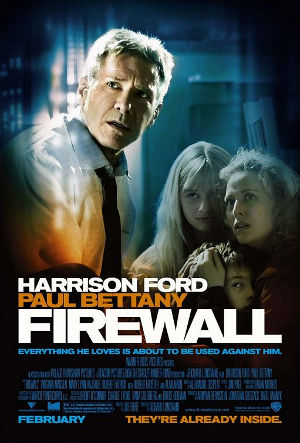Pass on Winter
Winter Passing is the type of film I strongly dislike. It’s a film that’s dark, moody, edgy, and eccentric for the sake of being dark, moody, edgy and eccentric. It never earns the style it so vehemently wants to impose on us, nor the necessary redemption of its leading character. It’s just pretentious as hell.
Winter Passing
1 & 1/2 Stars
I like Zooey Deschanel. I like Ed Harris. I like Amelia Warner. Yet I did not like this film. Oddly cobbled together with a forced vibe of weird and edgy, dark and moody, the film is just an odd compilation of performances. It’s almost as though these actor’s agents got together and had them make a reel to show to directors and producers showing off their talent for films they want to be considered for. And note to the writer/director – having the main character drown a kitten makes it a little hard to accept her as a sympathetic character later in the film.
 |
Reese Holden (Zooey Deschanel) is a mess. Living in New York as a struggling actress in off-off-Broadway productions she spends most of her time drinking, smoking cigarettes, doing cocaine, humping any guy who is nice to her, and banging her hand in dresser drawer. But she has a kind side; she’s taken in a stray kitten who she takes care of….oops, she found out it has leukemia. Well she’s still a nice person she’s not going to….hey, why is she walking into the river with the cute cuddly mewing kitten and a small duffle bag?? Oh my god! Cruella De Vil wasn’t this evil!
The kitten killer’s mother has just committed suicide and bequeathed her a collection of letters she and her father, both famous authors, wrote to each other in their youth. A publisher (Amy Madigan) offers Reese $100,000 for the letters and so the kitten killer returns home to Michigan on the bus to find her father (Ed Harris) living in the garage and a former student Shelly (Amelia Warner) and an odd character Corbit (Will Ferrell) living in the house. Seems Daddy’s gone ‘round the bend.
The rest of the film is the unremarkable story of how rigid and mean Reese begins to accept and understand these people who are living in the house and taking care of her father and finding her father has a side she didn’t know. Awwwww. The performances aside the entire film is a waste of time and money. Reese isn’t an interesting or sympathetic character and her father and Corbit are too crazy to be cared about. The only slightly interesting character is Shelly who has a real story of tragedy and loss that is quickly glossed over in favor of Reese’s self-indulgent pseudo-tragedy.
The story is also oddly interrupted by scenes that have nothing to do with anything connected to the characters or story. An example, one night driving Reese stops as a deer has been hit by the side of the road and gets out of the car to drag the deer to the side of the road. Next scene. Huh? The film has at least a dozen such moments that make the story structure of the film less and less cohesive. And we won’t even get into the numerous continuity and logistical issues such as having Ed Harris play a guy with hair, but using an older picture of him on the back of his novel being bald. Hmm…I think someone should have noticed that before me.
There are no reasons to see the film unless you just really love Zooey Deschanel and want to see her go through all the motions in a bad movie. The movie makes her character so unsympathetic that we can never accept her as anything else (did I mention she zips up a kitten in a duffle bad and drowns it alive in the Hudson River?). At least everyone got some good clips to use to land them their next role.




